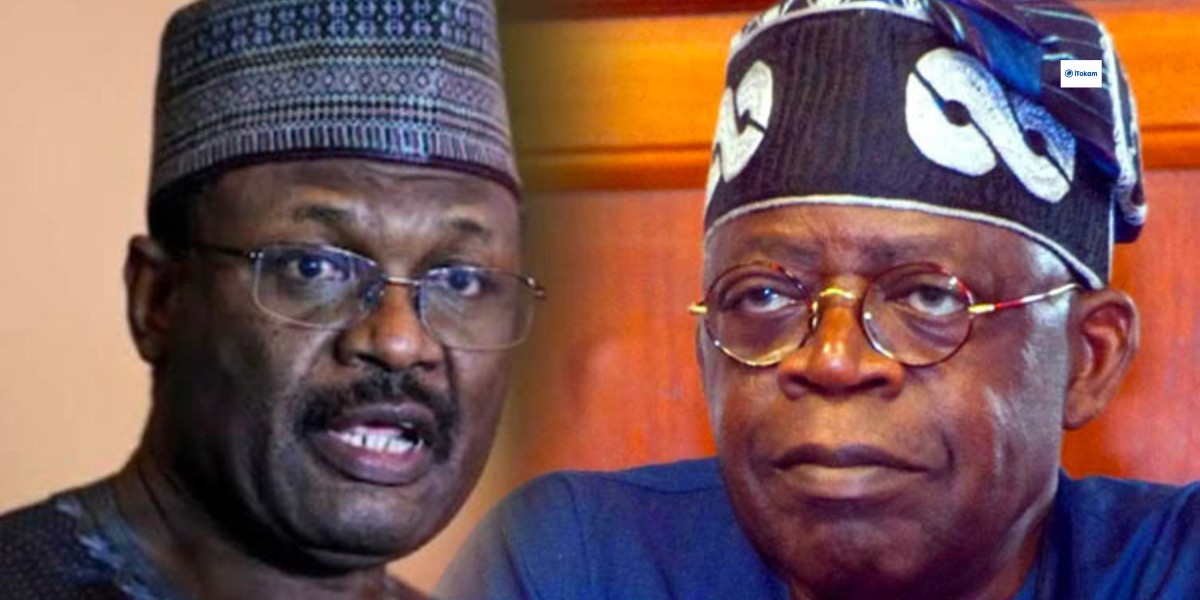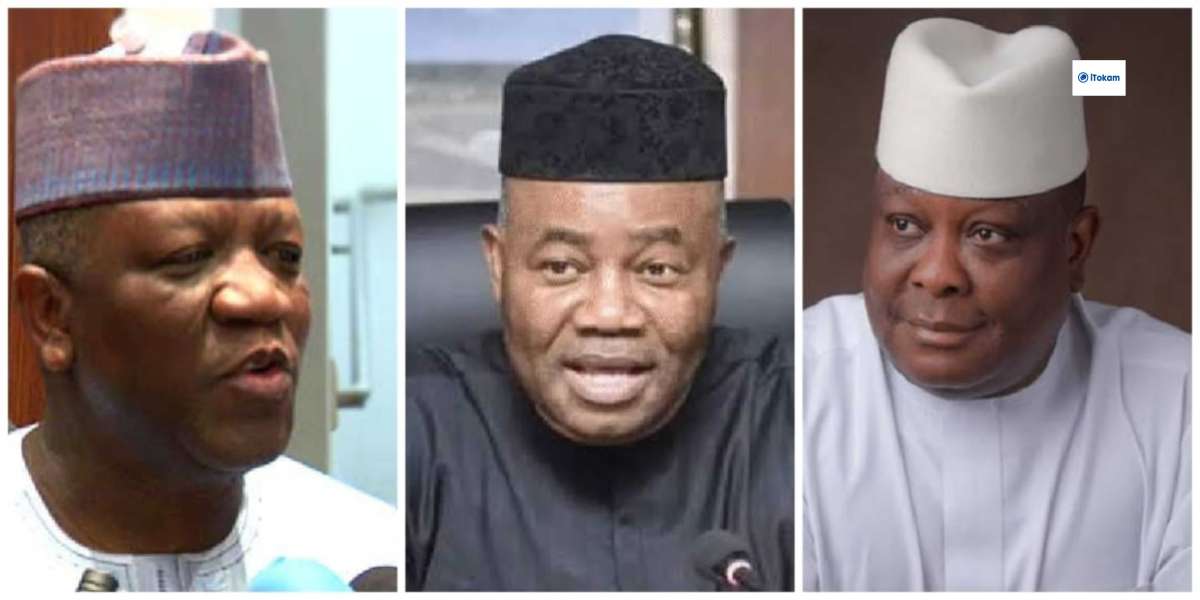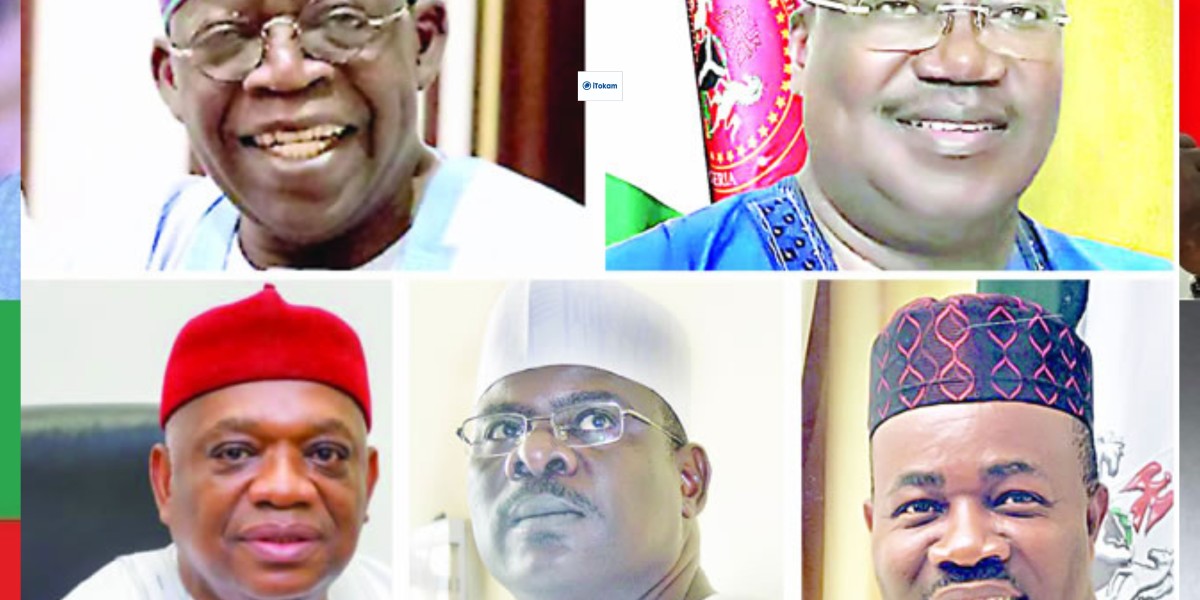The PEPC was informed by INEC, President Bola Ahmed Tinubu, and Vice President Kashim Shettima that Atiku Abubakar/Peoples Democratic Party (PDP) and Peter Obi/Labour Party (LP) petitions were false.
Contrary to Abubakar/PDP and Obi/(LP), neither the Constitution nor the Electoral Act 2022 gave FCT inhabitants a vote advantage over other Nigerians.
They further claimed that the Constitution and Electoral Act did not require a candidate to receive 25% of FCT votes to win, even if they had won the majority of votes in other states.
INEC, Tinubu, and Shettima offered this and other arguments in their final written presentations to the PEPC defending the challenges filed by Atiku/PDP and Obi/LP challenging the February 25 presidential election.
INEC's legal team, led by Abubakar Mahmoud (SAN), argued in its written address that the court should examine Section 17(1) & (2) (a) and Section 299 of the Constitution to interpret Section 134 (2) (b) and determine the draftsmen's intentions.
The section's main purpose was to ensure that one group of the country does not elect the president and not to develop superior inhabitants and voters.
INEC contended that the Constitution applies to the Federal Capital Territory (FCT) as if it were a state, citing many Supreme Court and Court of Appeal judgements.
"The use of the word ‘and’ in Section 134 (2) of the Constitution indicates nothing more than that," it said. The FCT is counted as one of the two-thirds of states where a candidate must receive 25% of the vote.
“This point is critical because the writers of the Constitution would not have referred to the FCT in Section 134 (2) (b) of the Constitution without using ‘and’ since the FCT is not actually a state but considered to be one.
“The FCT, beyond being the capital of Nigeria, has no special status over and above the other 36 states of the federation to require a presidential candidate to obtain at least 25% of the votes cast in the FCT before being declared the winner.
"Therefore, the only deduction that can be drawn with respect to Section 134 (2) (b) is that for a candidate to be considered duly elected to the office of President, he must meet the requirement of having not less than one-quarter of the votes cast at the election in each of at least two-thirds of the states of the federation, including the FCT.
INEC warned that any other interpretation would be ridiculous and against the constitution's spirit of equality and fairness. Tinubu and Shettima made a similar argument in their final written addresses for the two petitions.
Tinubu and Shettima legal team, lead by Chief Wole Olanipekun (SAN), stated that an election is about votes and voters, and all votes and voters are equal worldwide.
“The bothering question arises, going by the petitioners’ stance, that is, considering a candidate scores majority of the votes cast in all 36 states and does not secure 25% in the FCT, does the Constitution then expect that it is absurd that such a candidate will not be declared the winner? Naturally, the answer is no.”
They argued that "it cannot be imagined that the FCT is superior to the states, in terms of votes or voters or any other consideration whatsoever," citing multiple Constitutional passages that suggest states are superior to the FCT. Our higher courts have repeatedly ruled that the FCT is not superior to any state of the federation.
Also Read: S-Court Dismissal Of PDP’s Suit Not Setback To My Quest For Justice – Atiku
“Now, Section 66 of the Electoral Act, which refers to sections 133, 134, and 179 of the Constitution, speaks of election to the office of President or Governor, meaning that the position at the federal level, envisioned and thought by the Constitution, rhymes with what obtains at the state level, including the votes cast at each state capital, without any form of prejudice, as between the votes and voters in each state capital and the votes and voters outside.
“By the imperative of this statutory provision, it cannot be argued that the votes and voters at the FCT are more superior to those of other voters in other states of the federation since the Constitution does not so provide,” they added.
“In any election where the electorate performs their plebiscite, there is neither a ‘royal’ ballot nor ‘royal’ voter, and that residents of the FCT do not have any special voting right over residents of any other state of the federation, in a manner similar to the concept of preferential shareholding in Company Law,” Tinubu and Shettima urged the court.
INEC addressed other petition issues in its two addresses and urged the court to dismiss them because the petitioners failed to substantiate their cases.
The election was conducted in substantial compliance with the Electoral Act, applicable laws, and recommendations, contrary to the petitioners' claims of non-compliance and irregularities.
INEC argued that the APC's withdrawal notice, indicating that Shettima was no longer a candidate for the Borno Central Senatorial District, refuted the claim that he had double nominations.
The PDP's case against INEC and others was resolved by the Supreme Court's May 26 ruling, it said.
INEC claimed that Tinubu's Form EC9 false information claim "is statute-barred being a pre-election matter and cannot be ventilated in the instant action which bothers on the election held on the 25th day of February 2023."
"If the court finds that it is a pre-election matter, then the allegation of dual citizenship which is based on Form EC9 is also affected and cannot be litigated upon at this time," it said. The election judge also said Tinubu could run for office despite his dual citizenship.
It stated: “There are several authorities to the effect that dual citizenship does not disqualify a person from contesting an election in Nigeria. The Constitution forbids allegiance to other nations.
“The petitioners have not by credible, cogent and direct evidence shown and established the fact that the 2nd respondent (Tinubu) pledged allegiance to any other country,” INEC concluded. INEC contended that the petitioners failed to show Tinubu's criminal conviction.
“Notably, in Section 137(1)(d) of the Constitution, the prescription of ‘fine’ as a disqualifying factor for a presidential candidate is hinged on a ‘sentence’,” it said.
“Interestingly, 1st petitioners’ witness (PW 1) stated clearly under cross-examination that Case No: 93C 4483 relied upon by the petitioner was a ‘civil forfeiture proceedings’ and there was no charge or conviction.
Thus, the petitioners failed to show their allegation. It urged the court to rule in favor of INEC and declare the 2nd and 3rd respondents qualified.
The electoral umpire argued that the two sets of petitioners' claims that it violated the Electoral Act and other election regulations were based on a misinterpretation of the legislation. The last presidential election's results were manually collated, contrary to the petitioners' claim.
"All the petitioners' witnesses appear to agree that voting procedure prescribed in the 1st respondent's (INEC's) Regulations and Guidelines for the Conduct of Election, 2022 were duly complied with," INEC said of Atiku/PDP's case.
“The petitioners’ main complaint was the Presiding Officers’ inability to upload polling unit results to the 1st respondent’s INEC Result Viewing portal (iReV).
“The evidence before the court also shows that though the petitioners challenged the election on the basis that the polling unit election results were not uploaded on the iReV, they alleged corrupt practices in Sokoto, Kano, Kogi, Borno, Lagos and Rivers State and entry of wrong scores/results in 22 states, namely Abia, Anambra, Bauchi, Delta, Ebonyi, Edo, Enugu, Gombe, Imo, Jigawa, Kano, Katsina, Kebbi, Kogi, Lagos, Nasarawa, Niger, Ogun, Ondo, Plateau, River
27 witnesses were called. None of the witnesses knew what happened in the 176,800 polling locations in the 36 states and Abuja.
INEC maintained that even if no results are uploaded on the iReV and the hard copy is unavailable, the Nigeria Police and party agents may have hard copies.
It stated: “The manual collation adopted by the 1st respondent in the election was, in fact, established in evidence through the testimonies of petitioners’ witnesses (PWs) 9, 10 and 42 to the effect that hard copies of the exact results from the polling units were taken to the collation centres for collation and we urge the court to find same as a fact.
Given that but not agreeing that such obligation to electronically transmit election results in real-time for use in the collation process exists, we submit that the petitioners failed to lead credible evidence to support their assertion on the significant impact of the alleged incidents of non-compliance and/or corrupt practices alleged.”
INEC stated that Obi and LP called 13 witnesses to prove their petition. One testified that Tinubu and Shettima were not qualified to run for office. “The remaining 12 witnesses testified on Electoral Act, 2022 violations.
“It is pertinent to note that despite assertions of inflation, suppression, and manipulation of election results, which, in fact, informed the decision of petitioners to plead, in paragraph 79 of the petition, that they have adopted all their testimony in respect of the claimed non-compliance as acts of corrupt practices; none of the witnesses gave any direct admissible evidence of these allegations.”






Jonah Ekeh 41 w
Good delivery